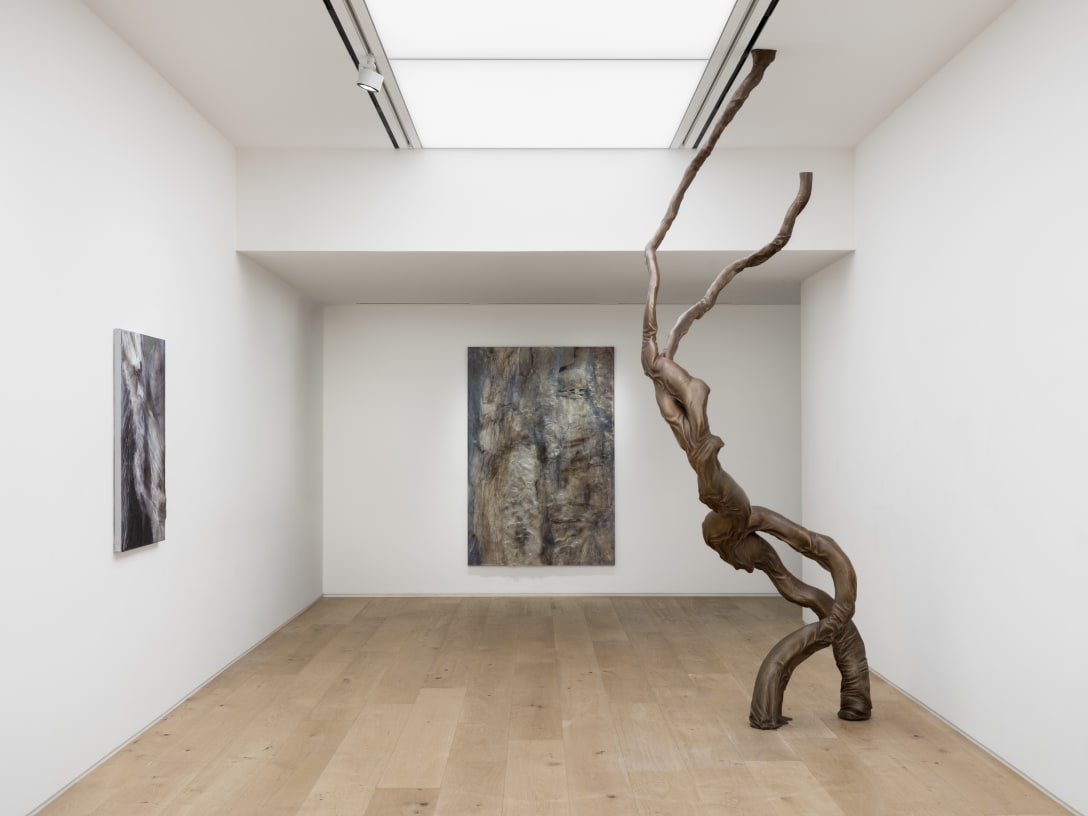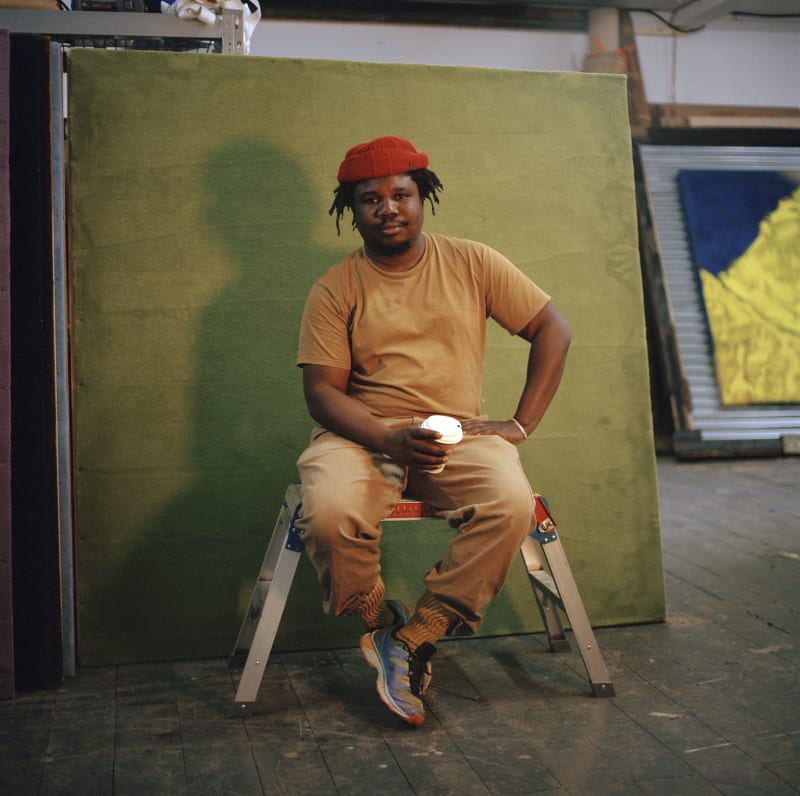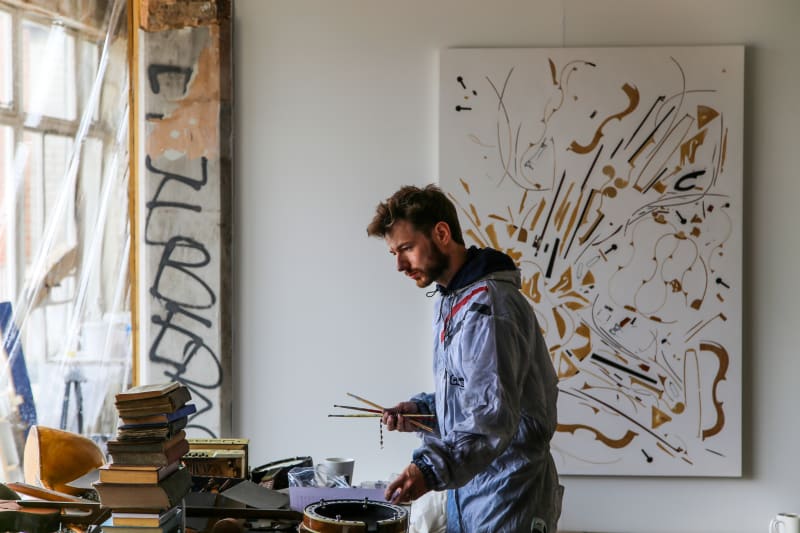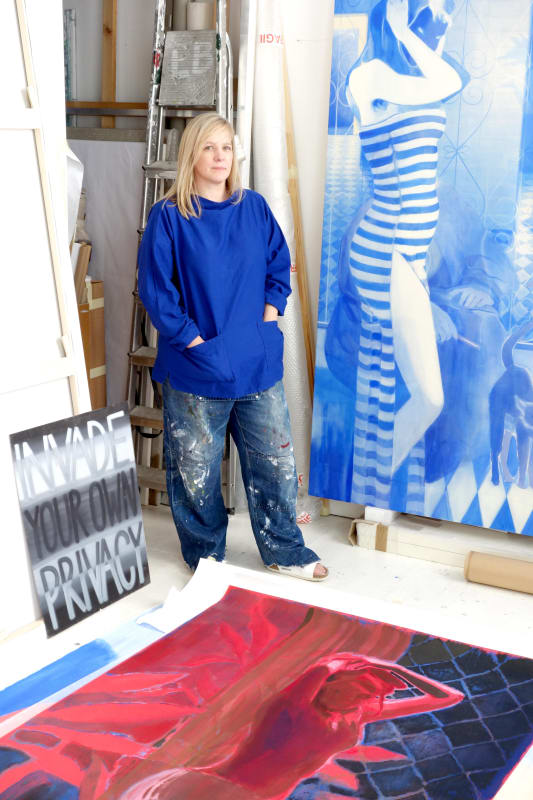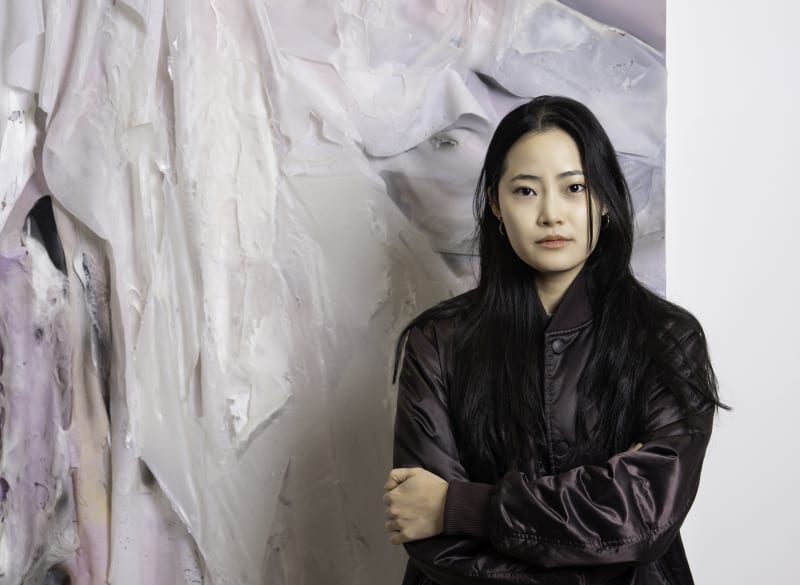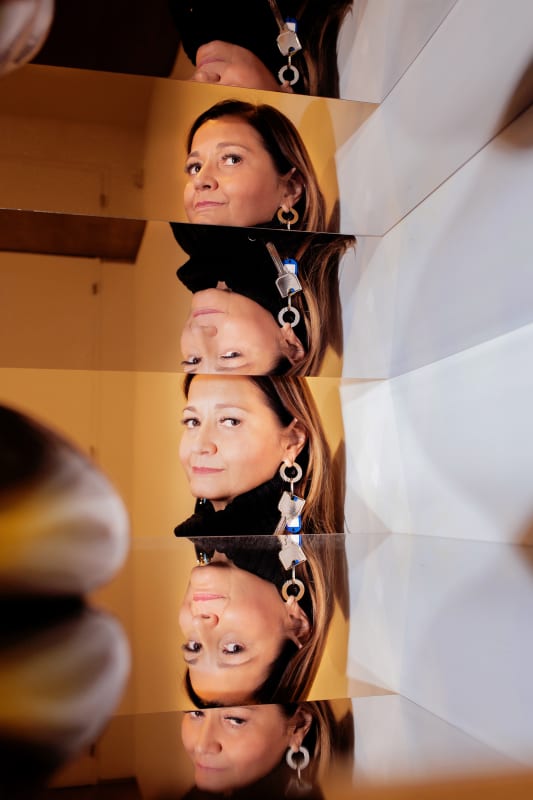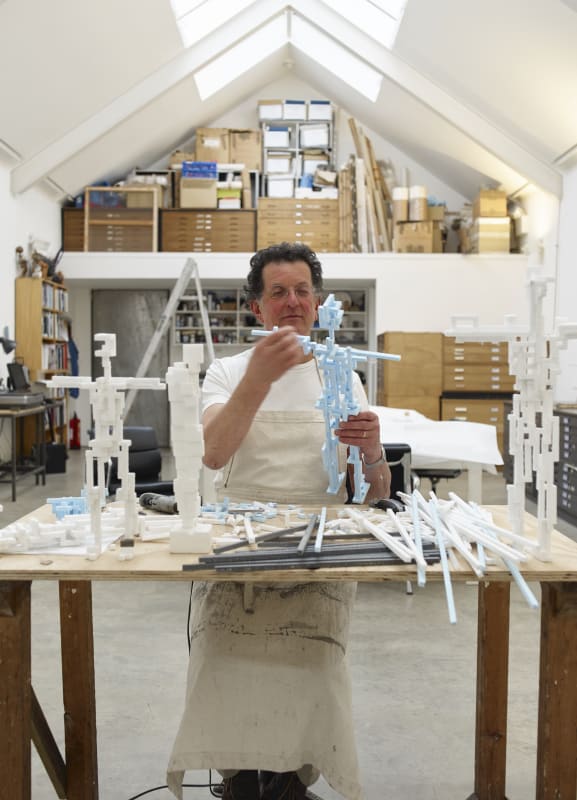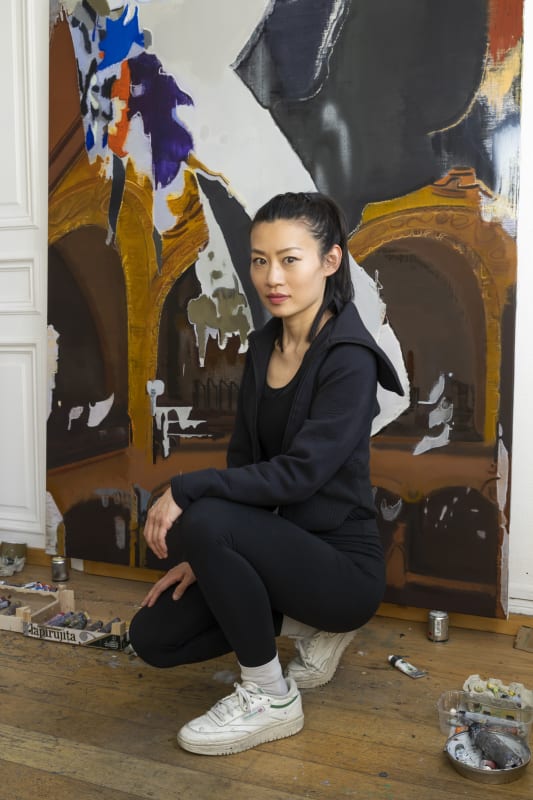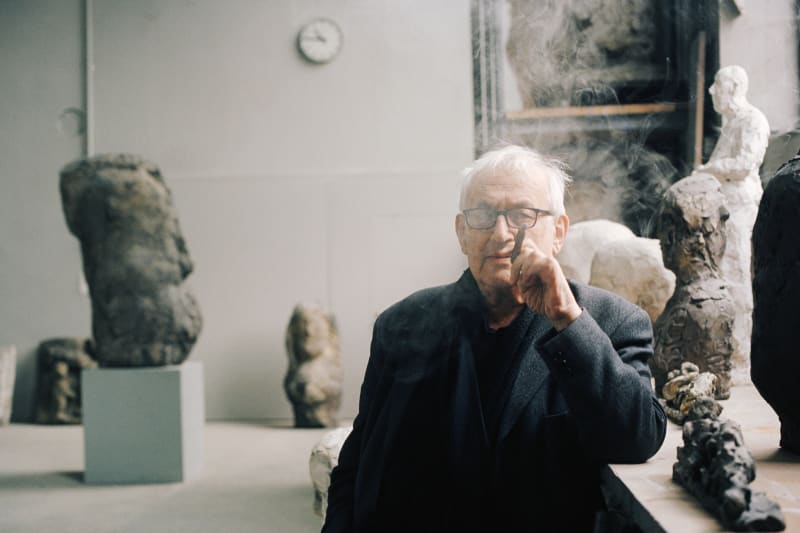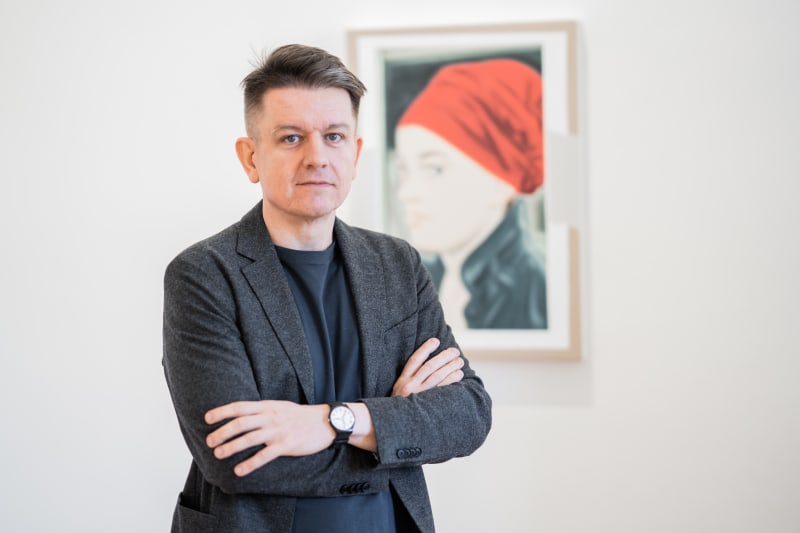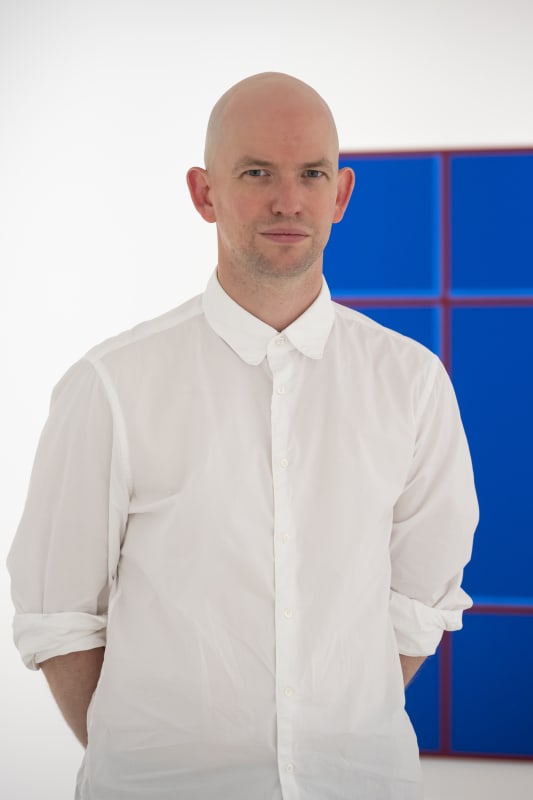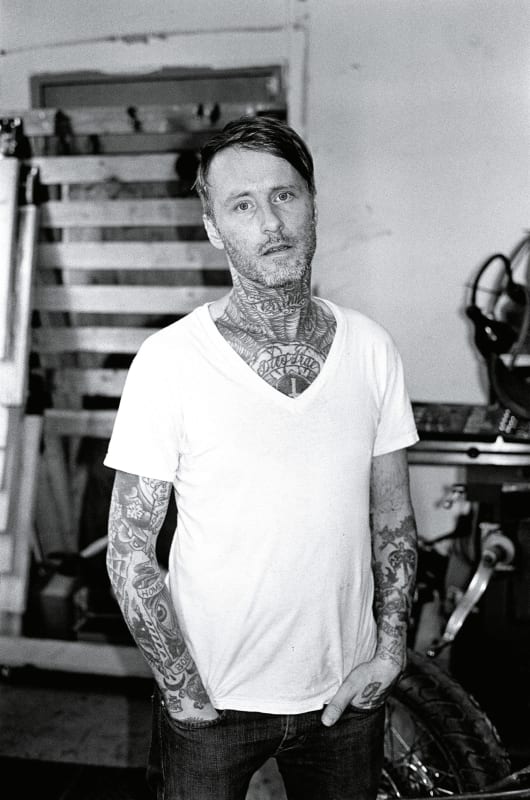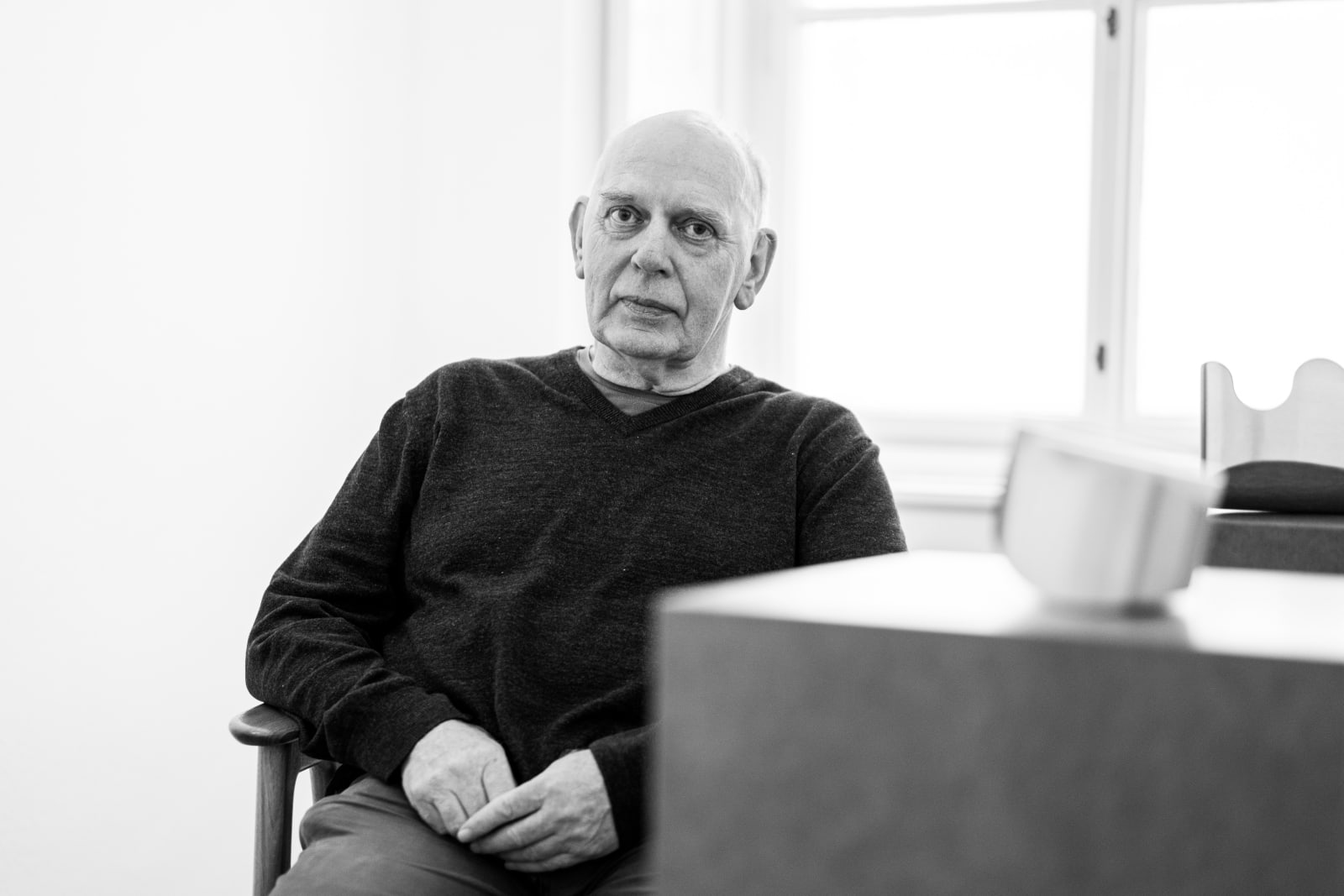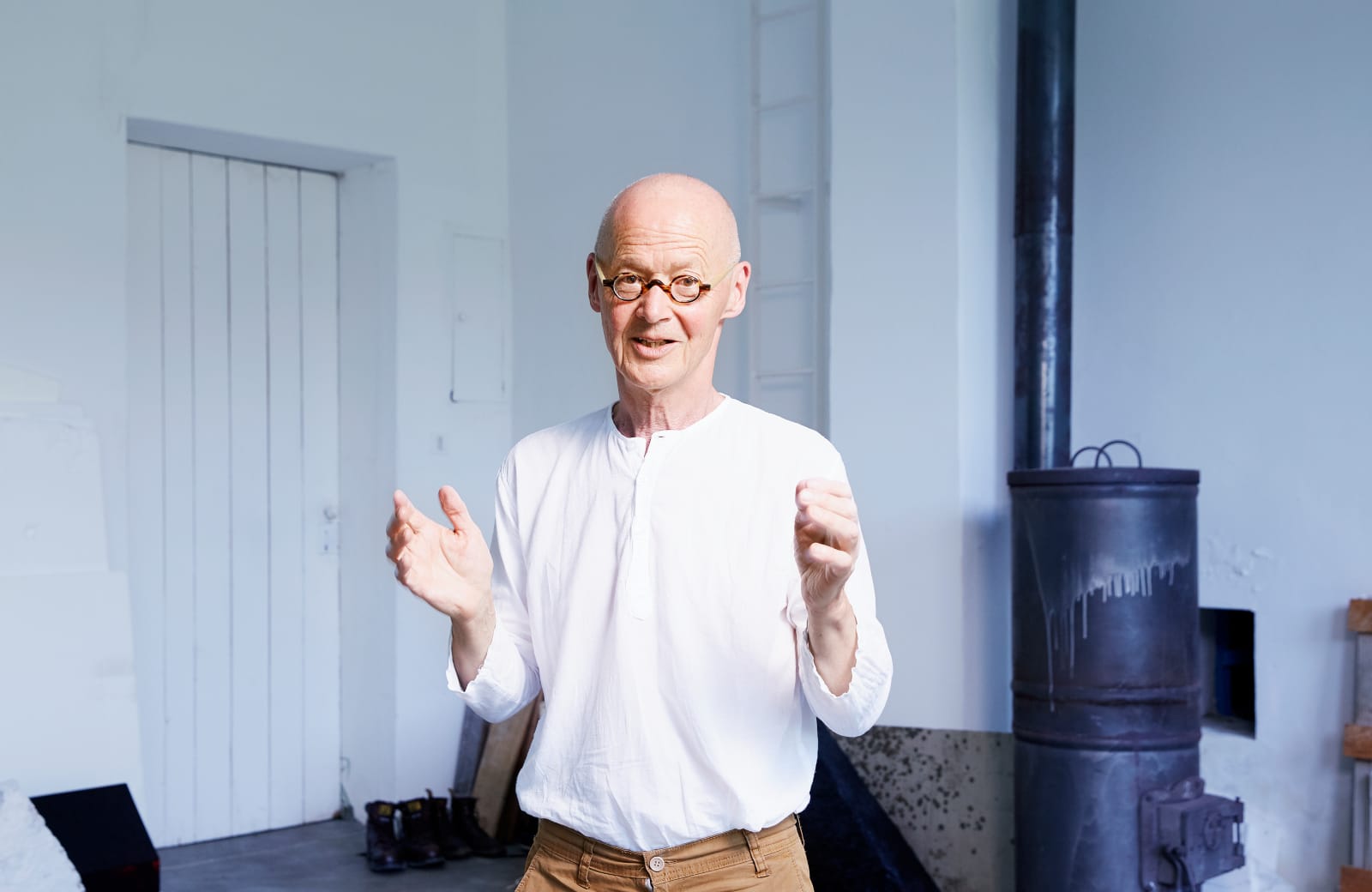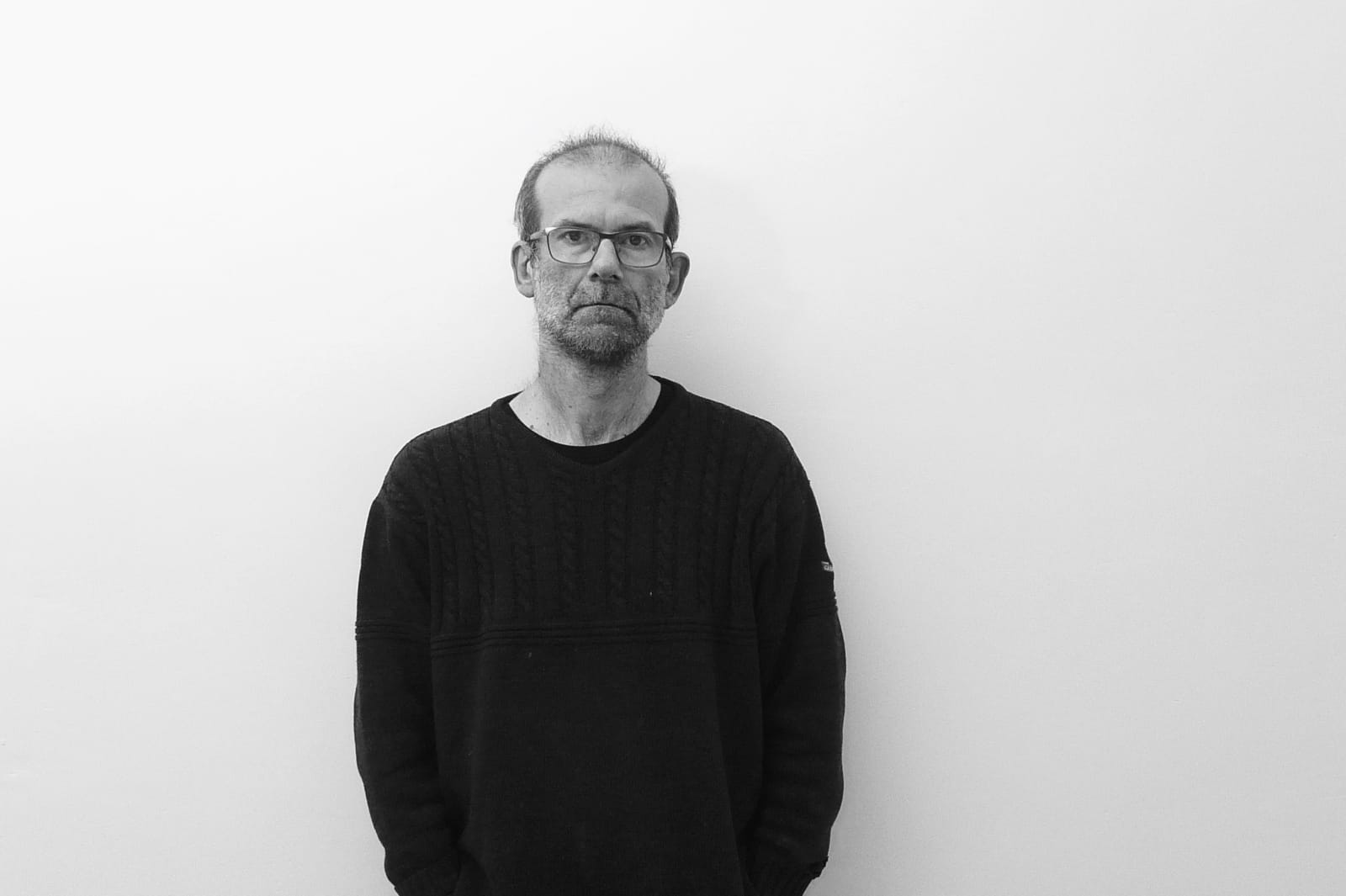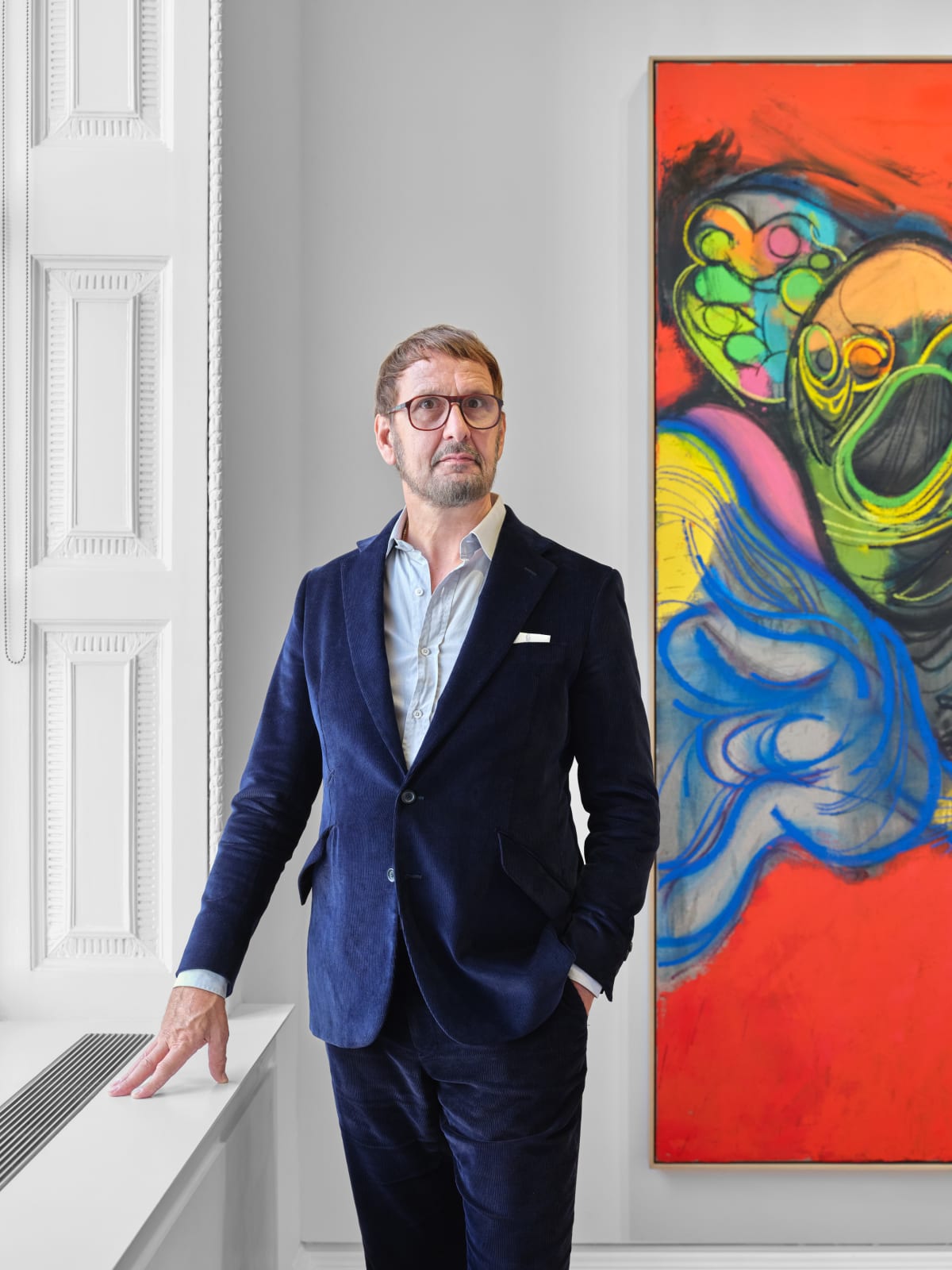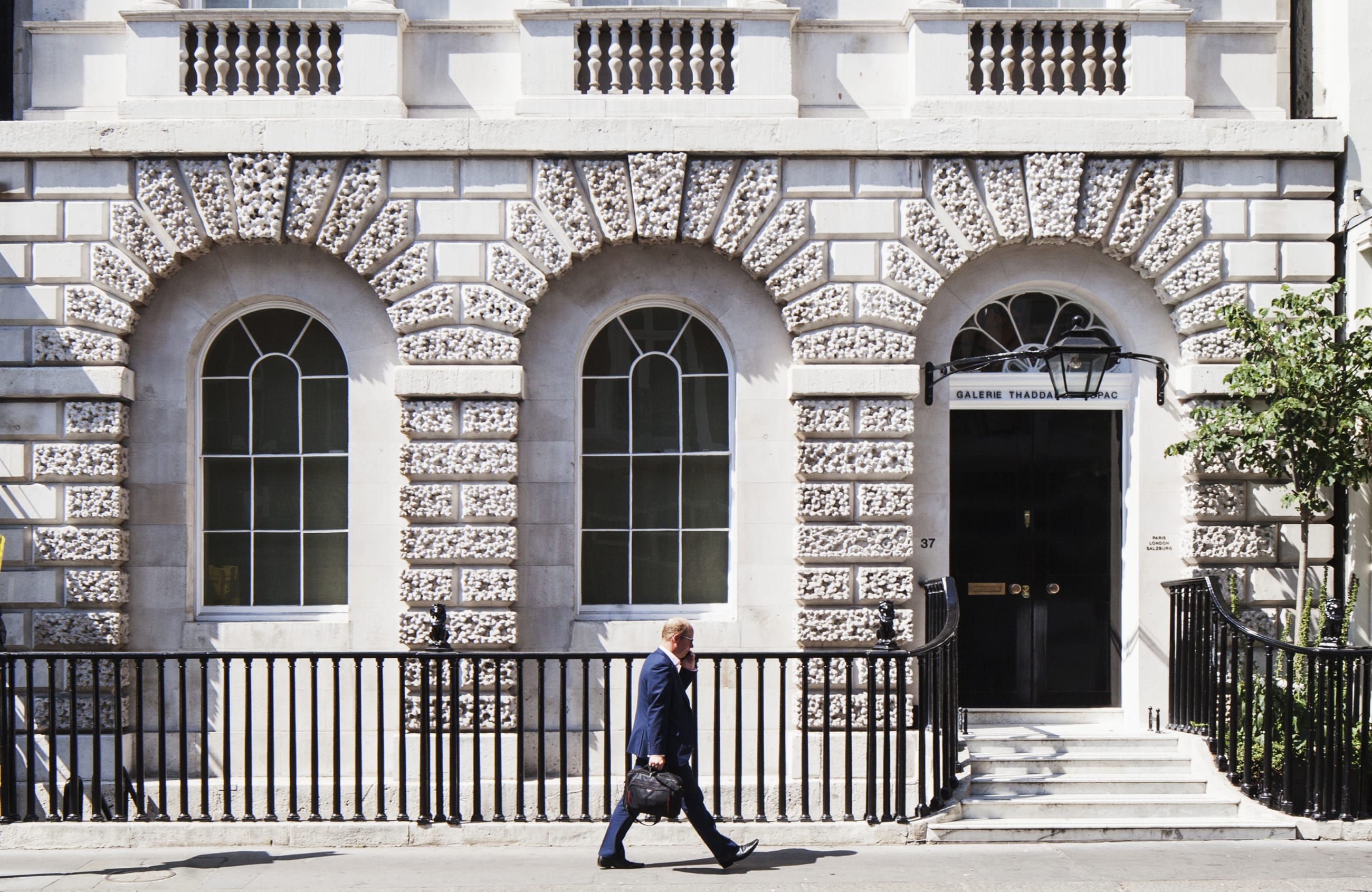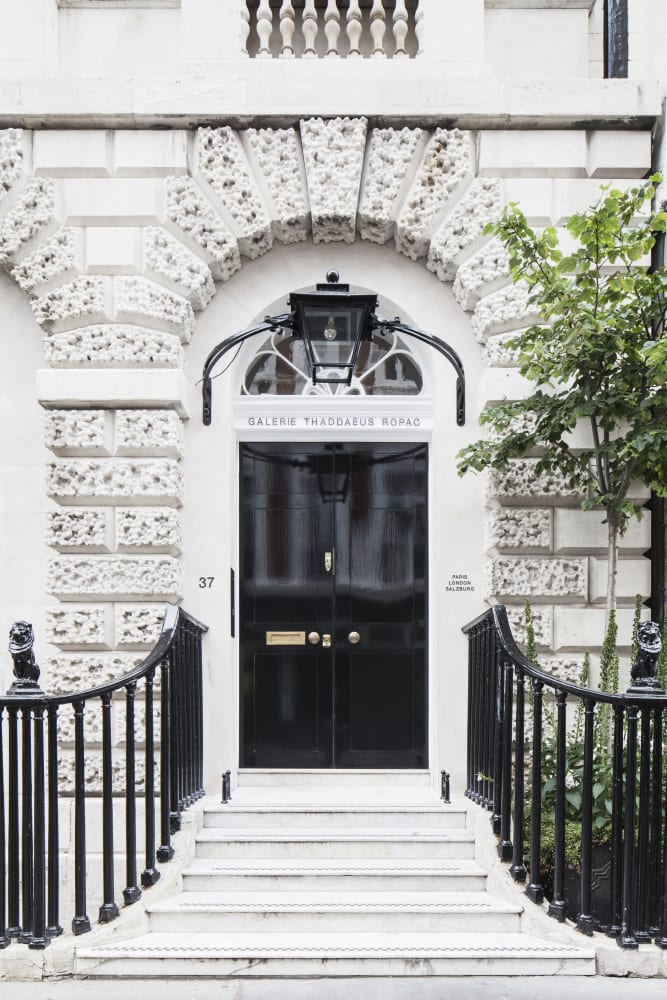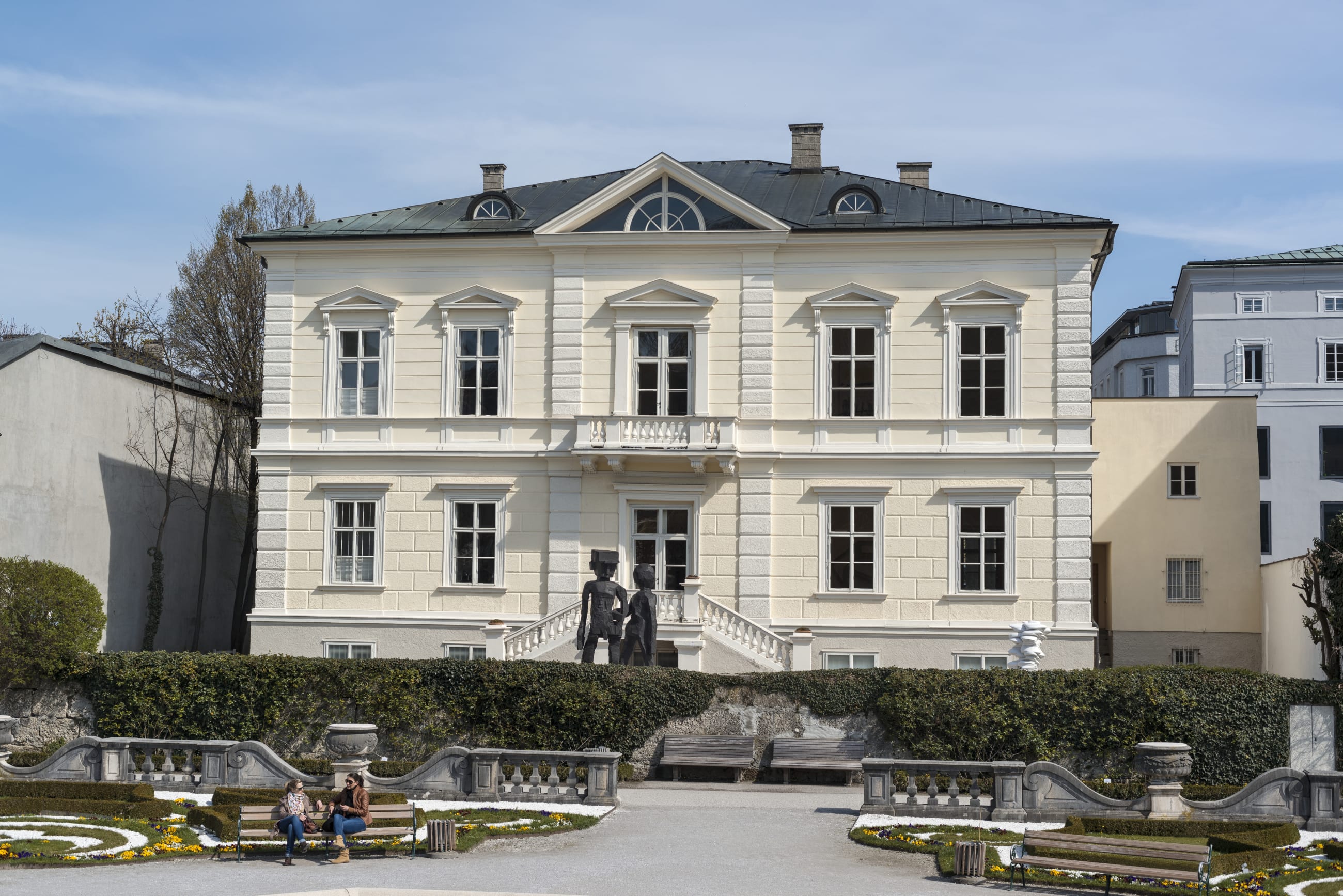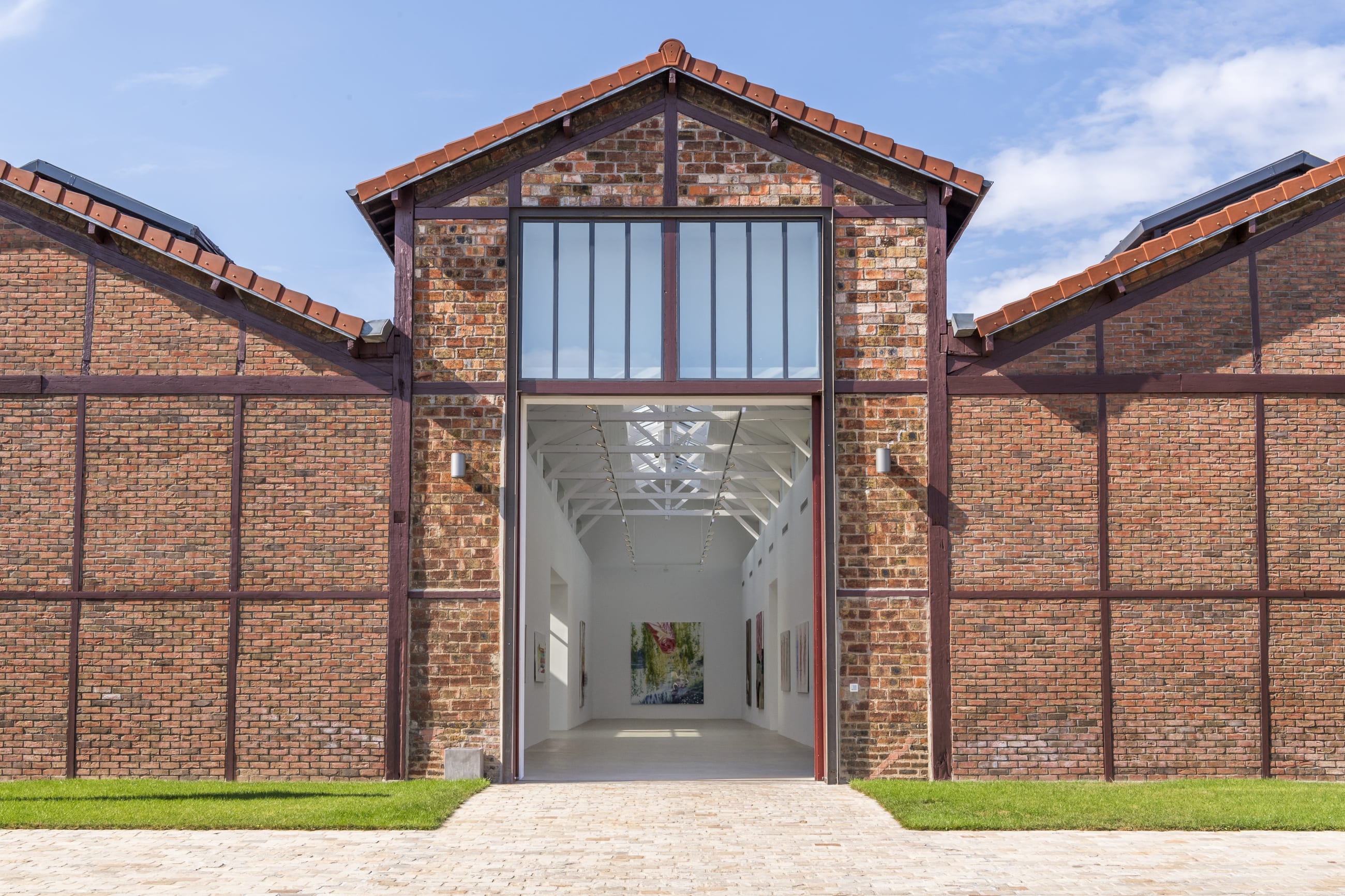Anselm Kiefer reveals Amsterdam installation with an anti-war message 'When will they ever learn?'
By Senay Boztas
The military uniforms hang from the walls—stiff, battered, empty but overflowing with dead rose petals. A 24m-long new mural by the post-war German artist Anselm Kiefer, crowning the staircase of Amsterdam’s Stedelijk Museum, illustrates the words of a 1950s anti-war song: Sag mir wo die Blumen sind, or Where have all the flowers gone?
The installation is part of a new two-part exhibition by Kiefer, who turns 80 today. The show first examines the influence of Vincent van Gogh in a section at the Van Gogh Museum. The Stedelijk Museum next door then tracks themes the artist has been concerned with throughout his career: the circle of life, death and the legacy of war.
Kiefer rose to notoriety in 1969 with photographs of himself in his father’s military uniform mimicking the verboten Nazi salute and is now known for gigantic, semi-abstract canvasses, often influenced by philosophy and literature and using materials from lead and straw to dried flowers.
The new commission, and title of the show, were inspired by the anti-war song by folk singer Pete Seeger, popularised in Germany by the popular singer, Marlene Dietrich. “This wonderful song I have always in my ear,” said Kiefer. “Quite a kitschy song, but there is one sentence that says: [when will they] ever learn? Because we cannot understand that today things happen that happened in 1933.”
The artist said although his work is not directly polemical, he is influenced by the global climate. “When I work, I never illustrate political events,” said Kiefer at a press opening. “But I’m very well informed. I look at TV, the parliament discussions, I look at CNN: I have a lot of information and this comes out again. It’s not that I make a programme… about the Ukraine war. No, it’s all in me, and it comes out in a more substantial way.”














